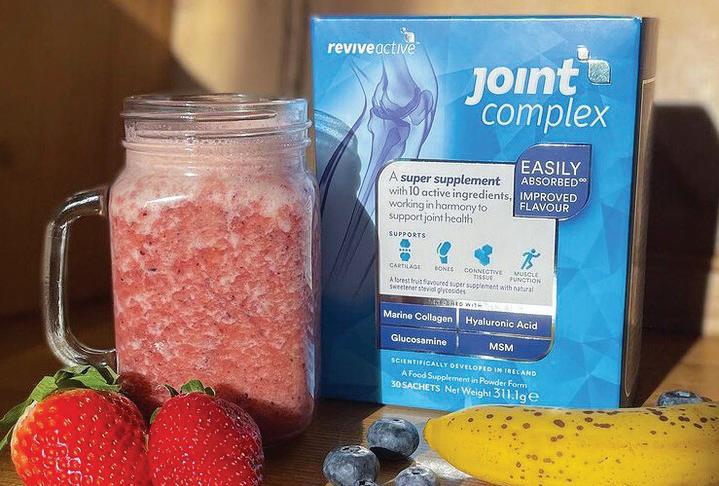
6 minute read
As I See It Marianne Heron State funding discriminates against private nursing homes
Headlines warning of a tsunami of nursing home closures earlier this month must have sent waves of concern coursing through thousands of families in Ireland. e crisis in the nursing home sector arises because of a shortfall in funding in the Fair Deal scheme, leaving vulnerable older folk and their families facing insecurity over their future care.
e whole point about the Fair Deal scheme was that it was intended to provide a ordability and peace of mind for families and their elderly relatives, many in need of 24-hour care or su ering from dementia. Around 80% of the 30,000 residents in nursing homes are supported by the Government’s Fair Deal scheme where the individual pays 80% of their income and 7.5% of the value of their home above an initial €36,000 and the Government pays the shortfall via the National Treatment Payment Fund (NTPFT)
Advertisement
“It takes a whole load o your mind,” says the daughter of an elderly friend who is in a private nursing home. “If it closed Mammy would have to come home to me. She needs 24-hour care. I would have to give up my job and it would create a huge amount of pressure.” e family are already fully stretched with four school-going children and there is no way that they could meet the cost for private nursing home care at an average cost of €1,200 t0 €1,500 a week.
Indications of a looming crisis in the care sector – where the subvention simply doesn’t stretch to cover the cost of care in the private sector – have been there for months. In the last year, 20 private nursing homes have closed. “ is year unless something changes another 20 or 30 will close,” warns Tom Finn of 11 strong Silver Stream Healthcare group . So far, despite calls from the representative body for 460 homes, Nursing Homes Ireland (NHI), to implement measures to bring stability to the sector, the only o cial response has been a temporary scheme to o set increased costs. “It’s not t for purpose, it’s not consistent with the increased costs involved in food electricity and sta ng,” says Michael McGlynn Communications and Research Executive for NHI. At the same time an intended policy paper on the future of the sector has been stalled.
To exacerbate matters further, the already yawning gap between payments for HSE nursing homes and those in the private sector has widened still further. “While the funding crisis has led to the closure of more than 20 nursing homes in the last year, the already considerable gulf in payments to HSE nursing homes has increased, they are now receiving on average €800 extra funding per resident per week. ese fees signify the reality of nursing home costs,” comments Tadhg Daly, CEO of NHI.
In Co Kilkenny the disparity between payments to HSE homes and private and voluntary care homes under the Fair Deal Scheme is among the widest at around €1,025 per week per individual. In January 2022 the disparity was €812, an indication of how payments to HSE homes have allowed for in ation while those the private homes have not.
“ e chasm in how the State funds its own nursing homes represents discrimination against private nursing home residents and those entrusted with meeting their health and social care needs. It also has a direct e ect on the ability of private nursing homes to appropriately renumerate and retain vital sta . A Fair Deal that is fair to all providers should be underpinned by the principle of equal pay for equal work,” says Tadhg Daly.
A consequence of the gap in payments are sta shortages in many homes, while another is the way families may have to pay a couple of hundred euro a month for extras like occupational therapy. e number of over 65s is set to double by 2051, whereas at present they represent 14% of the population. By mid-century one in every four will be over 65 and thus there will be a greater need for nursing homes in future. While the majority who are now living longer also remain healthy for longer, inevitably the demand for residential care will increase. Vulnerable older people unable to live independently with health challenges really need properly funded care. Both they and their families want peace of mind and reassurance that care facilities can continue to operate. ey deserve a Fair Deal not an unfair one.
Support your joints with Joint Complex
MSM an important nutrient for the ligaments, tendons, and muscles, and Vitamin D to support bone health. It’s ideal to help relieve joint discomfort, and to improve joint mobility and exibility. It works well alongside Omega 3 sh oils, turmeric, and ginger supplements for their natural anti-in ammatory bene ts.
It’s important that we support and protect our muscle and joints particularly as we age. If we don’t and it’s left untreated it can lead to further loss of joint and muscle movement. is discomfort is associated with wear and tear and is mostly caused by deterioration due to cartilage breakdown.
A couple of steps I recommend to customers who visit our stores and are looking to support their joints; Firstly, you should consider your footwear especially if you enjoy walking or running or if your job means you are on your feet a lot. Ensuring that you are wearing proper footwear is the rst place to start when it comes to looking after your knees. ere are changes you could make to your diet to support joint care. e top ones to avoid are sugar, sweet treats, dairy products, zzy drinks, co ee, and alcohol. Increase anti-in ammatory foods like oily sh, avocado, olive oil, nuts, seeds, ax, chia seeds, ginger, and turmeric. Increase green leafy vegetables, berries and brightly coloured fruit.
Finally, Joint Complex by Revive Active is an Irish super supplement brand, it’s one of our most popular products. It contains Glucosamine Sulphate, Hyaluronic Acid, and Marine Collagen, which are important nutrients to help support the joints and muscles. It also contains
I hear positive feedback from people of all ages who use Joint Complex by Revive Active. Runners, walkers, dancers, gardeners, and busy people have told me how happy they are with it. ey really like this supplement because they can get back to doing the things they enjoy. You simply take one sachet per day mixed with water. It has a lovely and refreshing forest fruit avour and is Irish made too!
So, take a look at your footwear, diet, and top up with supplements if needed to support your joint health. If you have any questions why not phone, pop us an email, or visit us instore, we would love to help you get moving again.
Shop online at www.naturalhealthstore.ie where you’ll be able to take a look at these brands.
Natural Health Store, Market Cross Shopping Centre Phone: 056 7764538 Email: info@naturalhealthstore.ie


By Tara Wylie New Star Mortgage Brokers

If you are hoping to buy or build a house in 2023, the best advice would be to engage with a mortgage broker early on, so that they can nd out quickly which lender(s) you meet the criteria with rst, as well as getting a bird’s eye view of the overall rates.
With Help-to Buy and First Home Scheme also available to First Time Buyers (FTBs) looking to buy a New-Build or do their own Self-Build, there is a lot of information to take in and not all FTBs understand how the schemes work.
We at New Star have taken the time to break down the essential points for FTB’s to help them understand the di erences between the two schemes.
As a FTB, the Help to Buy Scheme (HTB) is available to First Time Buyers only (FTB) who are looking to buy a new home or apartment or build their main primary dwelling.
e refund is based on the four tax years prior to application. e scheme was enhanced in July 2020 with an increased relief available of up to €30,000 and has been extended to December 31, 2024.
e Minimum Loan to Value (LTV) must be 70% or more of the Purchase value of the property or the approved Valuation in the case of a Self-Build in order to qualify.
You must also be tax compliant and if self-assessed, you must also have Tax Clearance.
If you are applying jointly on a mortgage application, both of the applicants must be FTB’s and not have previously owned or built a property.
e value of the Property (if buying) or the approved Valuation in the case of a Self-Build must be €500,000 or less in order to qualify for the scheme.
First Home Schemehttps://www. rsthomescheme.ie e First Home Scheme (FHS) is also known as the shared equity scheme and is available to First Time Buyers or those that meet the de nition of FTB under the Central Bank of Ireland’s *Fresh Start*. e Rules:
You can only borrow the maximum amount available to you (4 x gross income) and not be availing of a Loan to Income Exception with the Lender.
You must have mortgage approval in place with one of the following Lenders:














